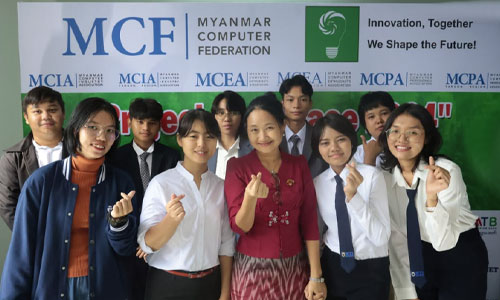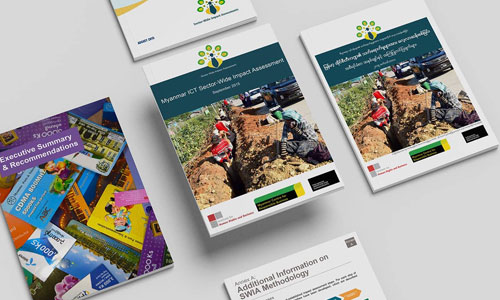The Myanmar Telecommunications Sector Review Project stands as a testament to GG International’s ability to deliver expert, high-impact advisory services in transitional markets — supporting not just technical liberalization but true empowerment through connectivity.
— Myanmar —
empowerment. transformation. connectivity.










Forging New Connections: Telecommunications Sector Towards Free-Market Liberalization
"The real promise of telecommunications reform is not merely greater access — it is the empowerment of people to shape their own futures."
— Hon. David Butcher, Strategic Adviser and Economist, GG International
Challenge
In the wake of profound political and economic shifts after decades of isolation, Myanmar entered a critical phase of national reform around 2012. Following Cyclone Nargis (2008) and the gradual opening of the economy, Myanmar’s leadership recognized that outdated telecommunications laws and monopolistic practices stood as barriers to broader economic growth, social inclusion, and international integration.
The government, through the Ministry of Communications, Posts and Telegraphs (MPT), sought to transition from a state-controlled telecom regime to a liberalized, competitive market that would drive investment, innovation, and accessibility. However, Myanmar faced formidable obstacles:
- Telecommunications infrastructure was severely underdeveloped, with some of the world’s lowest mobile and internet penetration rates.
- Legacy laws hindered private sector participation, competition, and innovation.
- Institutional frameworks for licensing, competition management, consumer protection, and dispute resolution were either absent or insufficient for a free-market environment.
Recognizing these challenges, the Asian Development Bank (ADB) engaged GG International, with Hon. David Butcher leading as Strategic Adviser and Economist, to provide expert technical, policy, and strategic advice. The project was critical not only for sector reform but also for Myanmar’s broader economic modernization.
Strategy
GG International’s approach drew upon its extensive experience advising emerging economies in telecommunications and e‑Government development — notably lessons from Rwanda's successful ICT sector transformation, which demonstrated how targeted regulatory reforms and strategic investment could accelerate economic and social advancement.
During an intensive assignment based in Nay Pyi Taw and Yangon over October 2012, Hon. David Butcher led the following strategic interventions:
- Sector Scoping Study: Conducted comprehensive consultations with senior MPT officials, private sector executives, and ICT stakeholders to map the current telecommunications landscape and diagnose structural challenges.
- Stakeholder Workshops: Facilitated three dynamic workshops over a 10-day period to foster a participatory dialogue, validate findings, and align Myanmar’s aspirations with international best practices in sector liberalization, mindful of Myanmar's nascent market status.
- Policy and Legislative Review:
- Reviewed institutional and governance structures, identifying key bottlenecks and opportunities.
- Assessed policy objectives and alignment with global telecommunications reform standards.
- Critiqued the draft telecommunications reform law under Parliamentary consideration, emphasizing the critical need to set clear policy frameworks before legislative passage.
- Highlighted the importance of licensing frameworks, competition regulation, consumer protections, dispute resolution mechanisms, and judicial access to underpin a competitive telecom market
- Development of Strategic Recommendations: Authored a detailed policy report synthesizing all findings, benchmarking Myanmar’s needs against global best practice models while proposing a clear roadmap toward liberalization.
The strategic framework emphasized "policy first, law second" — ensuring that reform efforts were deliberate, sequenced, and sustainable.
Transformation
The outcome of the project was immediate and catalytic:
- Policy Alignment: The final report was warmly received by Myanmar's government and development partners, particularly the ADB and World Bank. Following GG International’s initiative, the World Bank took the lead on ongoing telecom policy development assistance.
- Rapid Market Liberalization: Within months of project completion, Myanmar successfully issued two mobile licenses — a landmark step in ending the state monopoly and inviting foreign investment into the telecommunications sector.
- Broader Impact::
- Mobile penetration surged in the years that followed, unleashing transformative economic and social impacts across Myanmar.
- Lessons from this project fed into broader digital strategies supporting e‑Government services, financial inclusion, and rural connectivity — mirroring reform pathways seen in countries like Rwanda.